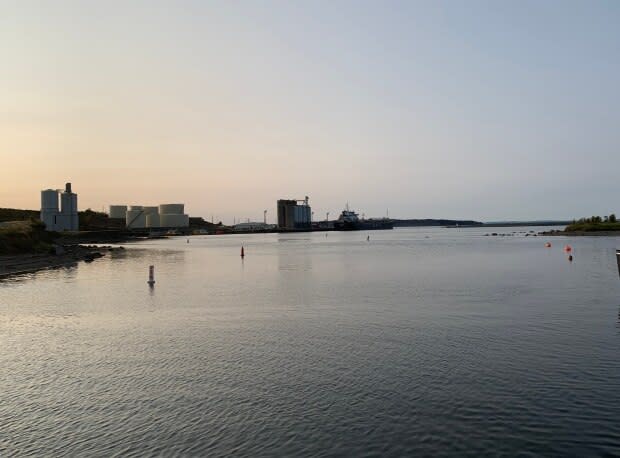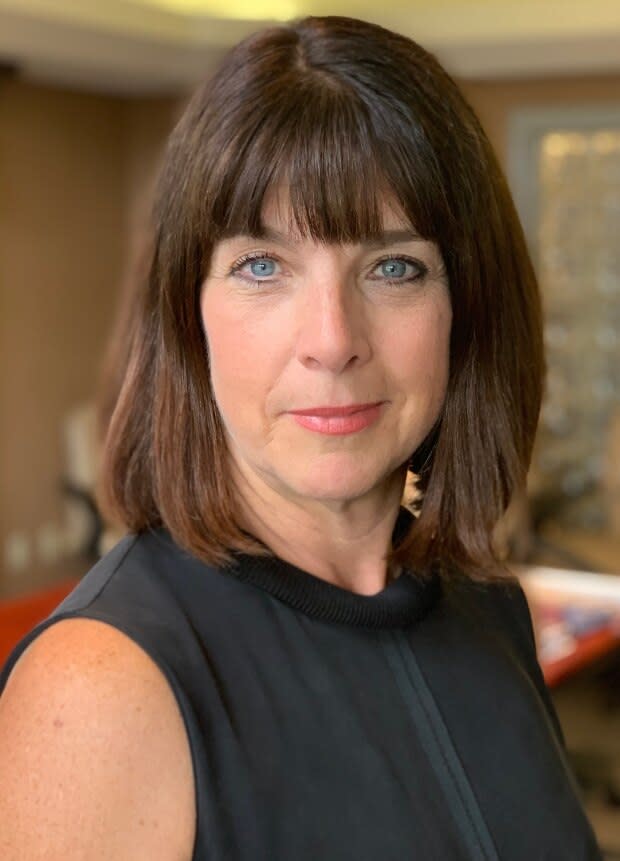'Unusable land' at heart of ambitious OCI plan for Long Pond harbour was sold for just $1

New details have come to light about a controversial Ocean Choice International proposal to put an industrial complex in Long Pond harbour, in Conception Bay South, including what the seafood company paid for access in an area that recreational boaters use.
The 2018 transfer of land from the Long Pond Harbour Authority to OCI was done for $1 and "other good and valuable consideration."
When contacted by CBC News, both the company and the port authority declined to comment on the details of the bargain-basement price stating they are confidential.
In total, a waterlot — the land underneath the water — of 12 acres was sold to OCI. The company is proposing an infill project of 17,000 square metres to build a wharf and cold storage facility in the middle of the harbour.
So far the town council has approved the proposal in principle but will still have to give a final decision through a vote.
Unusable land?
The reasoning behind the sale of the waterlot came up this week at the Long Pond Harbour Authority's annual annual general meeting, which was open to the public and hosted on the Zoom videoconferencing platform.
About 30 people joined the call, including numerous residents from the Long Pond area who had questions about the details of the sale.
"We sold land that was deemed unusable to an investor for the long-term sustainability and business development of the port," said Jennifer Lake, the town of Conception Bay South's director of community development and town representative on the harbour authority's board.
The harbour authority is a non-profit organization, with a board of directors made up of of port users, community, recreational and business representatives, and town employees.

Residents on the call disputed the assessment of the middle of Long Pond harbour as useless, since it is used as a channel for recreational boating, with hundreds of users moving through the area in a typical week.
Residents also wanted more information about how the decision was made to sell the land — something that the board has thus far refused to do, citing privacy.
For her part, Lake said that in two decades of operation, the port authority had never been asked for so much information and thus is now working on better communications.
She also referred questions about the OCI proposal to the town.
6 letters sent out, followed by apology
Tim LeGrow, a resident of the area and self-described avid port user who was on the call, said he has no issue with a commercial development in the pond, but said it must be done in conjunction with everyone else.
"These people are showing a lack of respect for the constituents of the town and the people that use [the port]. So as far as I'm concerned either they shape up or ship out," he said.
Meanwhile, the call for more communication has been a big part of the unfolding story about the OCI proposal.
When speaking with CBC News last week, C.B.S. Deputy Mayor Richard Murphy said the town made sure to mail letters to each person it thought would be affected by the project.
The CBC spoke with harbour users, however, who had heard nothing about the plan.
It emerges that the town's policy is to send letters to businesses and property owners within 100 metres of a proposed project.
In this case, that ended up being six letters, according to an email sent by the town's Director of Planning and Development to a resident in the area.
The town has since hand-delivered letters to residents in the area that includes an apology along with the original notification that was dated July 29.
"The Town of Conception Bay South realizes that given the size of this project, the notice should have been distributed to more residents. We apologize for this oversight."
Mayor declares conflict of interest
Mayor Terry French, who was originally a booster for the project, has been silent on the debate for the past few months because he since declared a conflict of interest.
French owns a property at the end of Terminal Road near the proposal. French made it clear even though he declared a conflict, he will not have any financial gain from the project.

"I've never had a discussion with OCI from a business nature when it comes to me personally. I've never bought anything off of them. I don't know if I ever bought a pound of cod tongues off of them from the supermarket," said French.
He did say that he was a big proponent of the project back in 2018 because the town needs more of a commercial tax base.
I've never bought anything off of them. I don't know if I ever bought a pound of cod tongues off of them from the supermarket - Terry French
French said the town is struggling because only about eight per cent of its revenue comes from commercial taxes, unlike other municipalities, where that share is 25 per cent.
He said because of that, the town is dealing with a deficit of roughly $1.7-million.
"Nobody wants to see their taxes go up. Sometimes the not-in-my-backyard-syndrome creeps into the decision makings of people like me. So you have to weigh the options," said French.
Residents form group, press for environmental review
Residents of the area, meanwhile, have organized a community group called Advocates for the Responsible Development of Long Pond. In the course of a week, it gained more than 600 members.
"It's really important in this day and age that there's transparency in all public properties," said organizer Moya Cahill.
"Certainly we're not getting that sense that there's an appropriate amount of attention given to transparency."

Cahill said the group still wants an effective public consultation and an environmental assessment for the project.
The latter of the two demands, however, is not looking likely.
CBC News asked the Department of Environment, Climate Change and Municipalities whether there would be an assessment.
An emailed response stated: "The proposed area to be infilled is less than five hectares and is not located within an estuary, and the Department advised OCI in a letter dated Sept. 20, 2018 that registration for environmental assessment is not required."
Read more from CBC Newfoundland and Labrador


